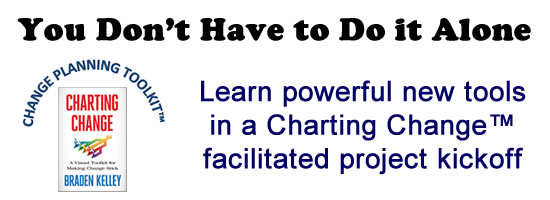Strategy versus Execution – a Meaningless Distinction

Over at HBR blogs, there is a wonderful debate on the subject of strategy between Roger Martin, who authored the post Stop Distinguishing Between Strategy and Execution, and Don Sull, an MIT scholar who believes there’s a meaningful distinction between strategy and execution.
Normally, I don’t bother looking at comments to blogs because in today’s social media-driven world they generally add little if any valuable insight. At their best vanity metrics for the hosts (thumbs-up, likes, etc), and at worst they are simply a means for commenters to plug themselves (take a gander at how many commenters on HBR say something like, “I’ve posted my own thoughts on xyz-look-at-me-at-some-silly-url-dot-com.”)
But in this case, there’s great fun in watching people try to hang with Roger Martin’s thinking. Basically, they can’t, and don’t, but keep doing the HBR equivalent of Einstein’s insanity definition: saying the same thing over and over and expecting a different result. Even Don Sull can’t hang with him. Let’s face it, there’s a reason Roger Martin is #3 on the Thinkers50 list, while Don Sull is, well, not on it.
Most people know I subscribe to the Martin school of thought. So I’m obviously biased. Still, given the fact that my day job for over 25 years has been facilitating teams through strategy, innovation, and lean sessions, I can attest to the meaninglessness of making a distinction between strategy and execution.
One commenter, arguing against Roger’s main point: “I think of strategy as plotting the course, execution as steering the ship.”
A nice soundbite, but let’s think about it for moment.
You’ve plotted your course, mapped it all out. You’ve chosen a path that will get you from A to B in what you think is the best possible course, given your ship and crew and supplies. But your course assumes certain weather and water conditions. You won’t know until you’re on your way if those conditions will come true or not. So you hit the water, and begin “executing” your “strategy.” Then the wind shifts unexpectedly, violently, and now you have to rethink your “strategy.” Are you now executing or strategizing as you make new choices and pick a new course?
It’s one and the same. It’s a meaningless distinction to separate strategy and execution, because you simply can’t arrive at a real world definition that separates the two in anything but a completely abstract and academic way that allows folks like Ram Charan and Larry Bossidy to write books entitled Execution.
Now, there is, as Roger points out in his rebuttal to Don Sull’s comment, a distinction between strategy and detailed strategic planning, the latter being the observable act of producing thick volumes of specific actions, timelines, and budgets. “I have no appetite for strategic planning,” writes Roger. “But I love strategy.”
Amen. Great stuff. Take a look!
Wait! Before you go…
Choose how you want the latest innovation content delivered to you:
- Daily — RSS Feed — Email — Twitter — Facebook — Linkedin Today
- Weekly — Email Newsletter — Free Magazine — Linkedin Group
 Matthew E. May is the author, most recently, of Winning the Brain Game: Fixing the 7 Fatal Flaws of Thinking.
Matthew E. May is the author, most recently, of Winning the Brain Game: Fixing the 7 Fatal Flaws of Thinking.
NEVER MISS ANOTHER NEWSLETTER!
LATEST BLOGS
Credit Card Shenanigans
It must be great to be in the credit card business in the United States. Demand is relatively inelastic and regulation is lax, so you can charge whatever you want for an interest rate, increase your fees once or twice a year, and make additional money off cash withdrawals and foreign exchange transactions.
Read MoreBuilding an Experience
As people become ever more immune to traditional advertising and marketing, branding will become more important. Branding is all about building an emotional connection with customers. Making the decision to follow a strategy focused on building a brand is not without peril, however, as it means that you will have to choose to not do certain things, like pursue a low price strategy.
Read More- « Previous
- 1
- …
- 4,132
- 4,133
- 4,134




